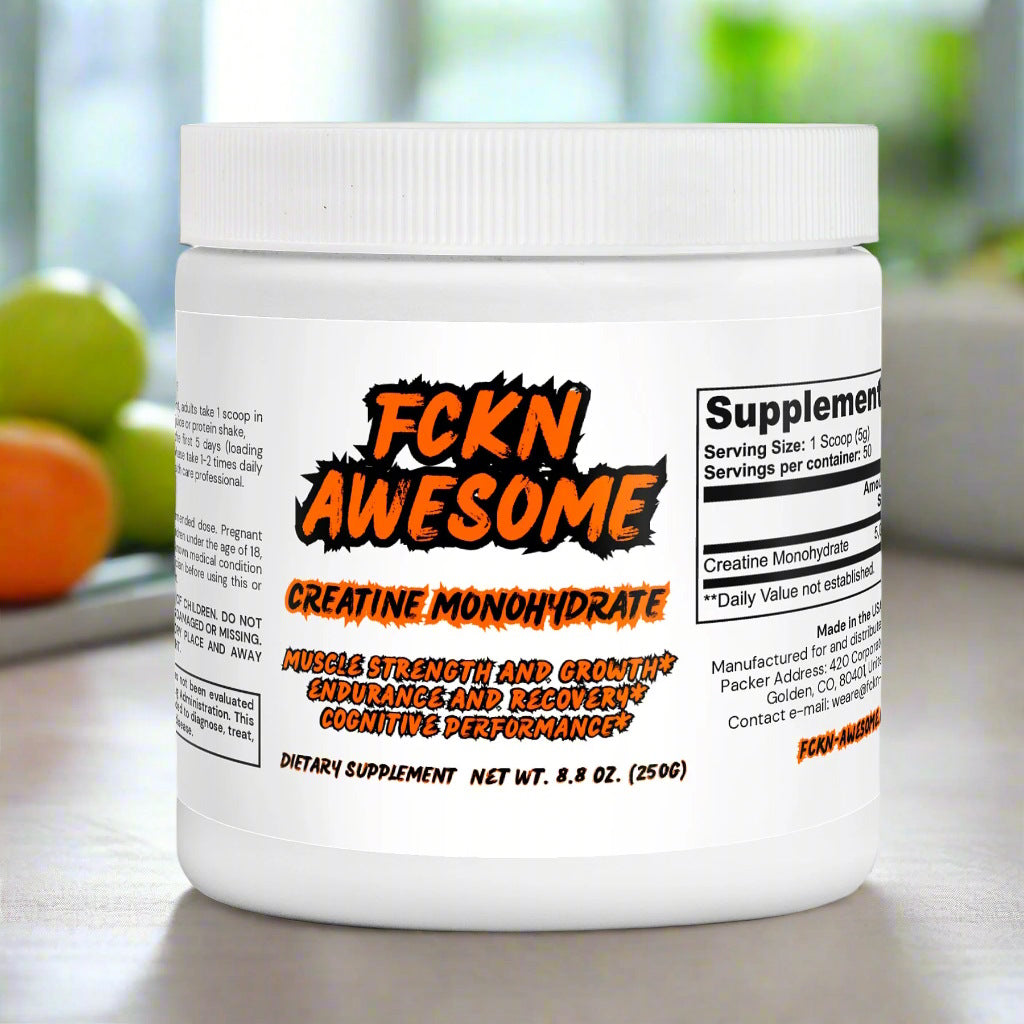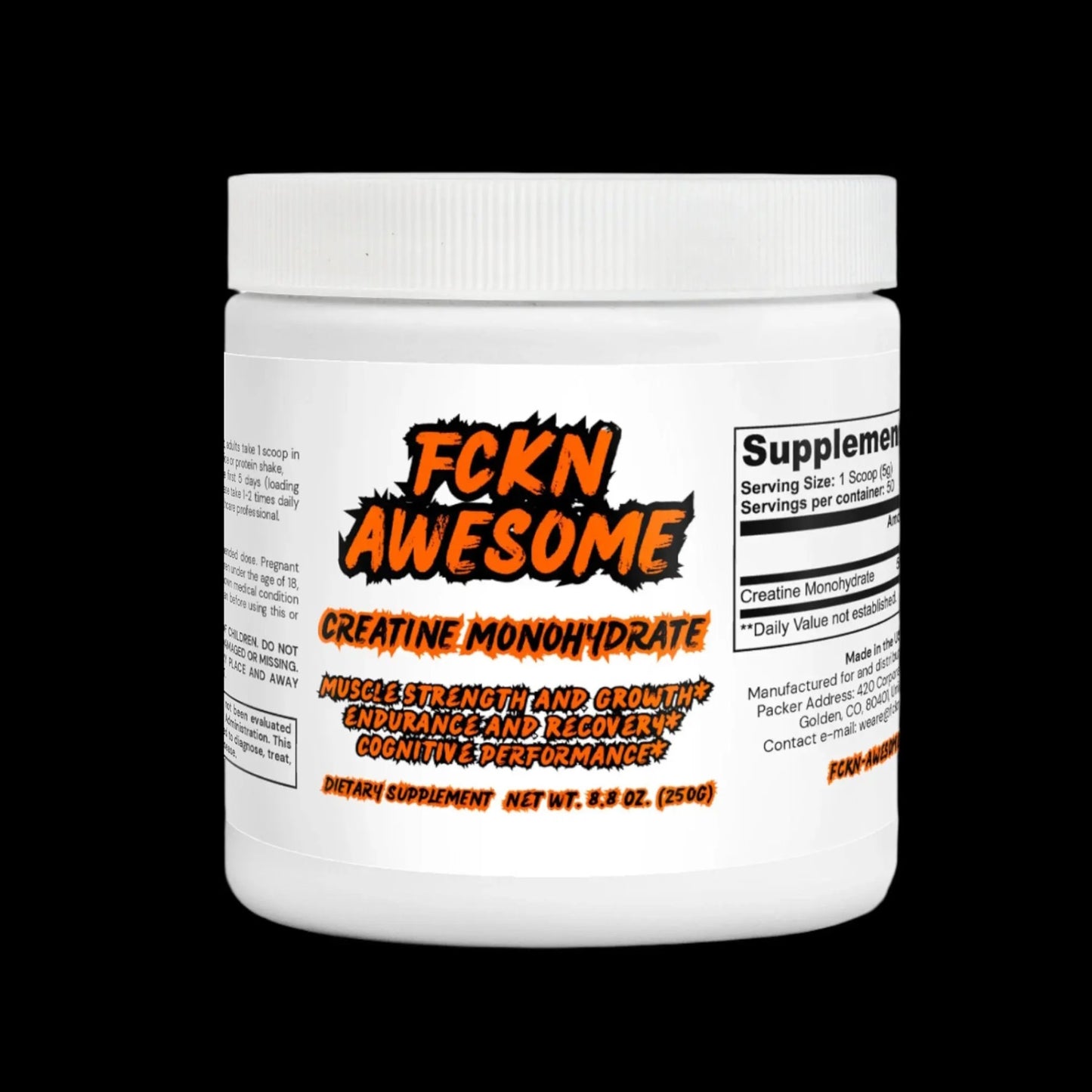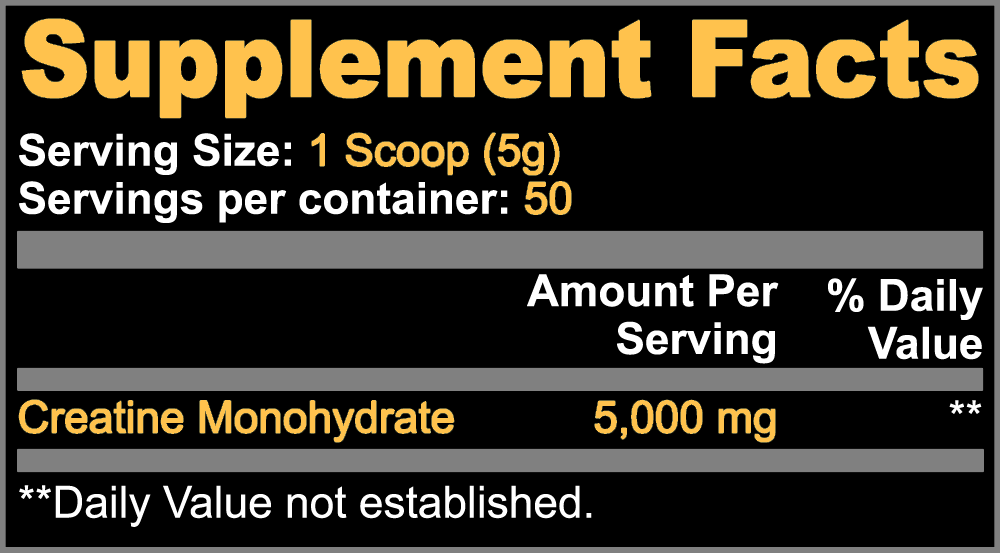
Creatine for 💪Muscle Strength and Growth
Share
When it comes to muscle development and growth, creatine is considered a cornerstone supplement.
Key Takeaways:
- Creatine is effective in improving performance, strength, and muscle growth.
- Creatine enhances muscle strength and growth primarily by increasing ATP levels (the main energy molecule), allowing for improved performance and greater training capacity.
- Additionally, creatine increases muscle cell hydration, giving muscles a fuller look and creating an environment favorable for muscle growth and recovery.
Human Studies 🔬
💪 Muscle Strength
- "...Creatine supplementation facilitates more significant improvements in strength and fat-free mass...provides positive benefits to both males and females, athletes and recreational fitness enthusiasts, as well as younger and older individuals" [1]
- "After supplementation, the maximal strength in the creatine group significantly increased..." [2]
- "There is substantial evidence to indicate that a low-dose, short-term oral Creatine supplementation beneficially affected muscle power output in elite youth soccer players." [3]
- "These results support a number of earlier studies that demonstrated that creatine supplementation at low doses and without the use of the loading phase are effective for increasing maximal strength and endurance of upper limbs." [4]
💪 Muscle Growth
- A 2022 review of 16 randomized controlled trials has concluded: "Overall, creatine is an efficient form of supplementation for muscle growth in the healthy young population with adequate training in a variety of dosage strategies and athletic activities." [5]
- Another 2 systematic reviews and meta-analysis have also concluded creatine's efficiency in improving muscle growth, both in younger and older adults. [6, 7]

Meta-analysis of the Efficacy of Creatine supplementation combined with resistance training on Muscle Hypertrophy (adapted from Burke, R. et al., 2023)
🔝 Height
- What's also interesting, a study of 4291 participants, aged 2 to 19 years, who provided valid dietary information and examination measure, have shown that: "Each additional 0.1 g of creatine consumed per day increases height by 0.60 cm (simple model) or 0.30 cm (adjusted model). The daily intake of creatine from a regular diet in taller children and adolescents was higher than in shorter peers aged 2–19 years." [8]
Conclusion
Creatine has firmly established its place as one of the most effective supplements for enhancing muscle strength and growth.
From improving ATP availability to fostering better muscle recovery, its benefits are backed by decades of research.
Whether you’re young, old, an elite athlete, or a recreational gym-goer, creatine offers something for everyone aiming to unlock their full strength potential.
With proper use and consistent training, creatine can help you break through plateaus and achieve the performance and physique you’ve always desired.
So, are you ready to take your fitness journey to the next level?

























